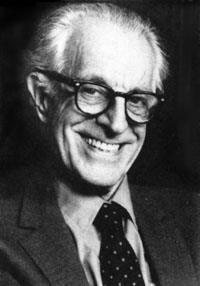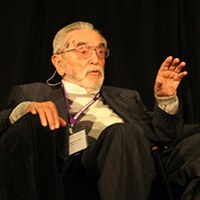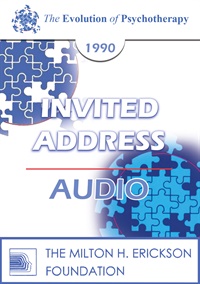EP90 Invited Address 06a - The Revised ABCs of Rational-Emotive Therapy (RET) - Albert Ellis, PhD
- Average Rating:
- Not yet rated
- Topic Areas:
- Invited Addresses | Rational Emotive Behavior Therapy (REBT) | Belief Systems | Cognitive Behavior Therapy (CBT) | Psychotherapy
- Categories:
- Evolution of Psychotherapy | Evolution of Psychotherapy 1990
- Faculty:
- Albert Ellis, PhD | Salvador Minuchin, MD
- Duration:
- 1 Hour 28 Minutes
- Format:
- Audio Only
- Original Program Date:
- Dec 14, 1990
- License:
- Never Expires.
Description
Description:
This revision of the original ABCs of RET and cognitive-behavior therapy shows that people's Belief System (B) about their Activating Events (A) of their lives largely contribute to their emotional and behavioral Consequences (C) but that A, B, and C importantly influence and include each other and that all three include interacting cognitive, emotive, and behavioral elements.
Educational Objectives:
- To describe the revised ABCs of RET (activating events, beliefs, and emotional-behavioral consequences)
- To show how these activating events, beliefs, and emotional-behavioral consequences interrelate and influence each other
- To show how these ABCs of RET can be used diagnostically and therapeutically
*Sessions may be edited for content and to preserve confidentiality*
Credits
Handouts
| Timestamped Transcript (867.3 KB) | 20 Pages | Available after Purchase |
Faculty

Albert Ellis, PhD Related Seminars and Products
Albert Ellis, PhD, was an American psychologist who in 1955 developed Rational Emotive Behavior Therapy (REBT). He held M.A. and Ph.D. degrees in clinical psychology from Columbia University and American Board of Professional Psychology (ABPP). He also founded and was the President of the New York City-based Albert Ellis Institute for decades.
He is generally considered to be one of the originators of the cognitive revolutionary paradigm shift in psychotherapy and one of the founders of cognitive-behavioral therapies.[2]
Based on a 1982 professional survey of US and Canadian psychologists, he was considered as the second most influential psychotherapist in history (Carl Rogers ranked first in the survey; Sigmund Freud was ranked third).[3][4] Psychology Today noted, "No individual—not even Freud himself—has had a greater impact on modern psychotherapy."[5]

Salvador Minuchin, MD Related Seminars and Products
Salvador Minuchin, MD, developed Structural Family Therapy, which addresses problems within a family by charting the relationships between family members, or between subsets of family. He was Director of the Philadelphia Child Guidance Clinic. Although it was minimally staffed when he began, under his tutelage the Clinic grew to become one of the most modeled and respected child guidance facilities in the world. In 1981, Minuchin began his own family therapy center in New York. After his retirement in 1996, the center was renamed the Minuchin Center. Dr. Minuchin is the author of many notable books, including many classics. His latest is Mastering Family Therapy: Journeys of Growth and Transformation. In 2007, a survey of 2,600 practitioners named Minuchin as one of the ten most influential therapists of the past quarter-century.


